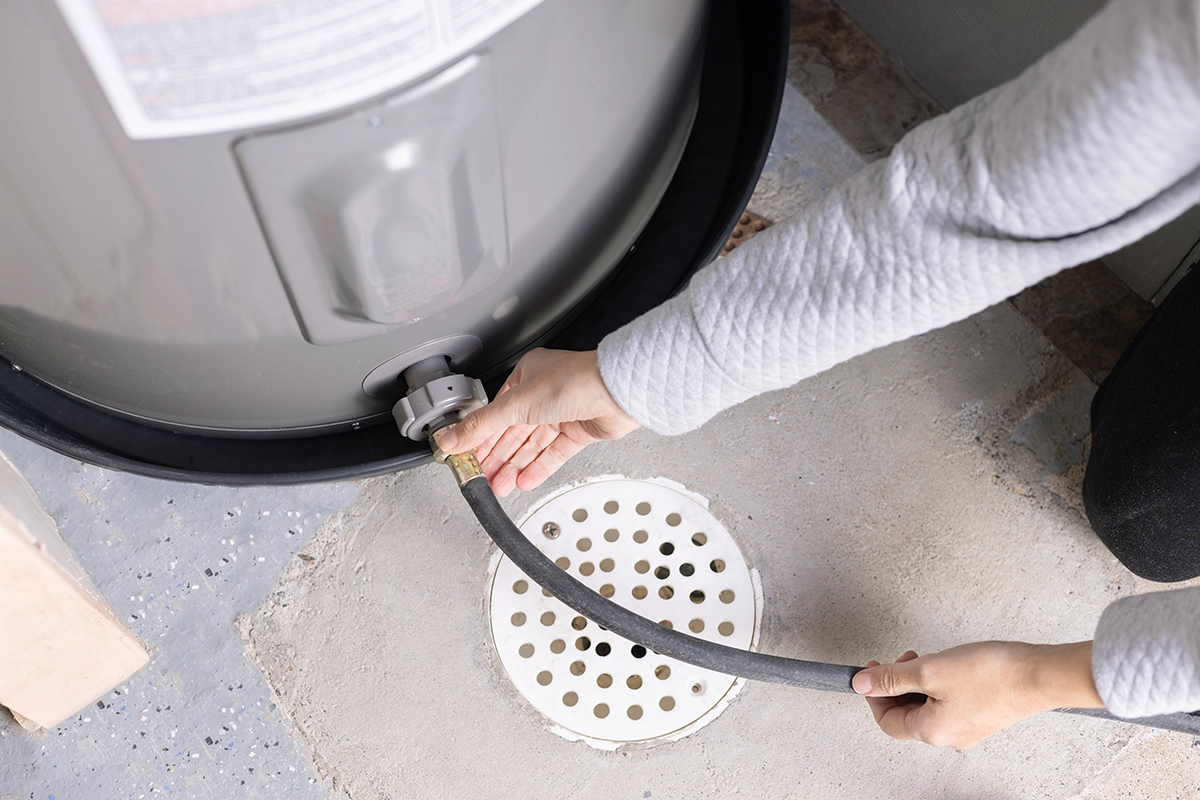Why You Might See Salt Around Water Heater Units
Home /
Noticing salt around water heater units isn’t uncommon, but understanding why it happens can protect your system from damage and help maintain optimal efficiency. At Clog Heroes in Fredericksburg, VA, we frequently encounter homeowners concerned about this symptom—and we believe educating you pays for itself. Salt deposits are more than a cosmetic issue; they can indicate underlying water quality problems or corrosion that, if left untreated, may shorten your water heater’s lifespan or even lead to leaks.
What Causes Salt Around Water Heater Units
Finding salt around your water heater usually stems from mineral deposits left behind during evaporation. Most of the salt you see is actually calcium or magnesium compounds—hard water minerals that stick to surfaces as water evaporates.
In Fredericksburg, our local water often contains elevated mineral levels. As hot water runs and some evaporates inside the tank or pipe connections, it carries minerals to the surface. Over time, these accumulate as visible crusts—particularly around valves, drain pans, and pressure relief outlets.
Hard Water: The Root of the Problem
Living in Fredericksburg, many residents don’t realize they live with hard water. Hard water is defined by high levels of dissolved calcium and magnesium and can cause scale buildup in appliances like water heaters.
When hard water heats inside the tank, minerals solidify and form limescale. These scale deposits not only reduce heating efficiency but also flake off and collect as salt near the tank. Without proper maintenance, scale buildup worsens and forces the unit to force harder to heat water—raising your utility bills and increasing the likelihood of early tank failure.
How Salt Around Water Heater Indicates Leaks or Weeping
While mineral deposits themselves don’t leak, they can signal tiny, persistent drips—curious leaks often so minor you might not feel them. As mineral-rich water slowly seeps from fittings, valves, or seams, it leaves behind concentric rings or sparkling mineral patterns.
Whether the issue comes from a corroded pressure relief valve, a loose drain connection, or a crack in the tank itself, addressing even minor leaks early can prevent serious damage like flooding or tank rupture.
Signs You Should Replace Your Unit
Salt accumulation isn’t always a cause for immediate alarm, but occasionally it signals that your water heater is nearing the end of its useful life. Consider replacement if you notice:
Corrosion and rust around fittings or seams
Constant dripping from the temperature and pressure relief (T&P) valve
Reduced hot water supply or longer reheating times
Cloudy or metallic‑tasting water
Noise or rumbling, indicating internal sediment buildup
If one or more of these issues accompany salt deposits, reach out to Clog Heroes in Fredericksburg, VA. Our trained technicians can inspect your system and recommend whether flushing the tank, repairing fittings, or replacing the unit is the best solution.
How to Clean and Maintain Around the Tank
You don’t have to let salt build up unchecked. Try these simple maintenance steps:
Shut off power or gas to the water heater.
Let it cool before wiping away visible deposits with a damp cloth or vinegar-based cleaner.
Inspect for corrosion, leaks, or loose fittings while you clean.
Tighten leaking components (only if DIY-safe), or call a technician for professional repair.
Install a water softener to reduce hard water minerals and prevent future buildup.
By routinely cleaning and inspecting salt around water heater units, you can spot leaks before they become worse, eliminate standing mineral residue, and prolong the life of your tank.
Preventing Salt Around Water Heater in Fredericksburg Homes
To reduce the chances of saline deposits and scale within your system, consider these proactive measures:
Water softener treatment: Softening water before it reaches the tank effectively removes calcium and magnesium.
Routine flushing: Drain and flush the tank at least twice a year to remove sediment that accelerates corrosion.
Install an anode rod: A magnesium or aluminum anode rod protects tank metal by attracting corrosive elements.
Schedule professional maintenance: Regular inspections by Clog Heroes can catch leaks, check pressure valves, and assess tank condition.
Why Clog Heroes Is Your Trusted Water Heater Partner
At Clog Heroes in Fredericksburg, VA, we care about keeping your plumbing systems—especially your water heater—in peak condition. We’ve served homeowners throughout the region and understand how local water conditions affect system longevity.
Our certified plumbers use high-grade diagnostic tools to detect leaks, check mineral levels, and evaluate when repairs or replacement make sense. Whether it’s cleaning up salt around water heater units or helping you decide whether a new water heater is a better long-term investment, we aim to keep your system safe and reliable.
Keep an Eye on Salt Around Water Heater Units
Salt or scale buildup around your water heater should never be dismissed as harmless. It often signals hard water, minor leakage, or emerging problems. Simple monitoring and low-cost maintenance like cleaning, flushing, or installing a water softener can protect your home and extend your system’s life.
If you’re dealing with salt deposits, suspect a hidden leak, or want a complete water heater tune-up, reach out to Clog Heroes in Fredericksburg, VA. We’ll inspect your system, clear mineral buildup, repair leaks, and provide honest advice about next steps.

